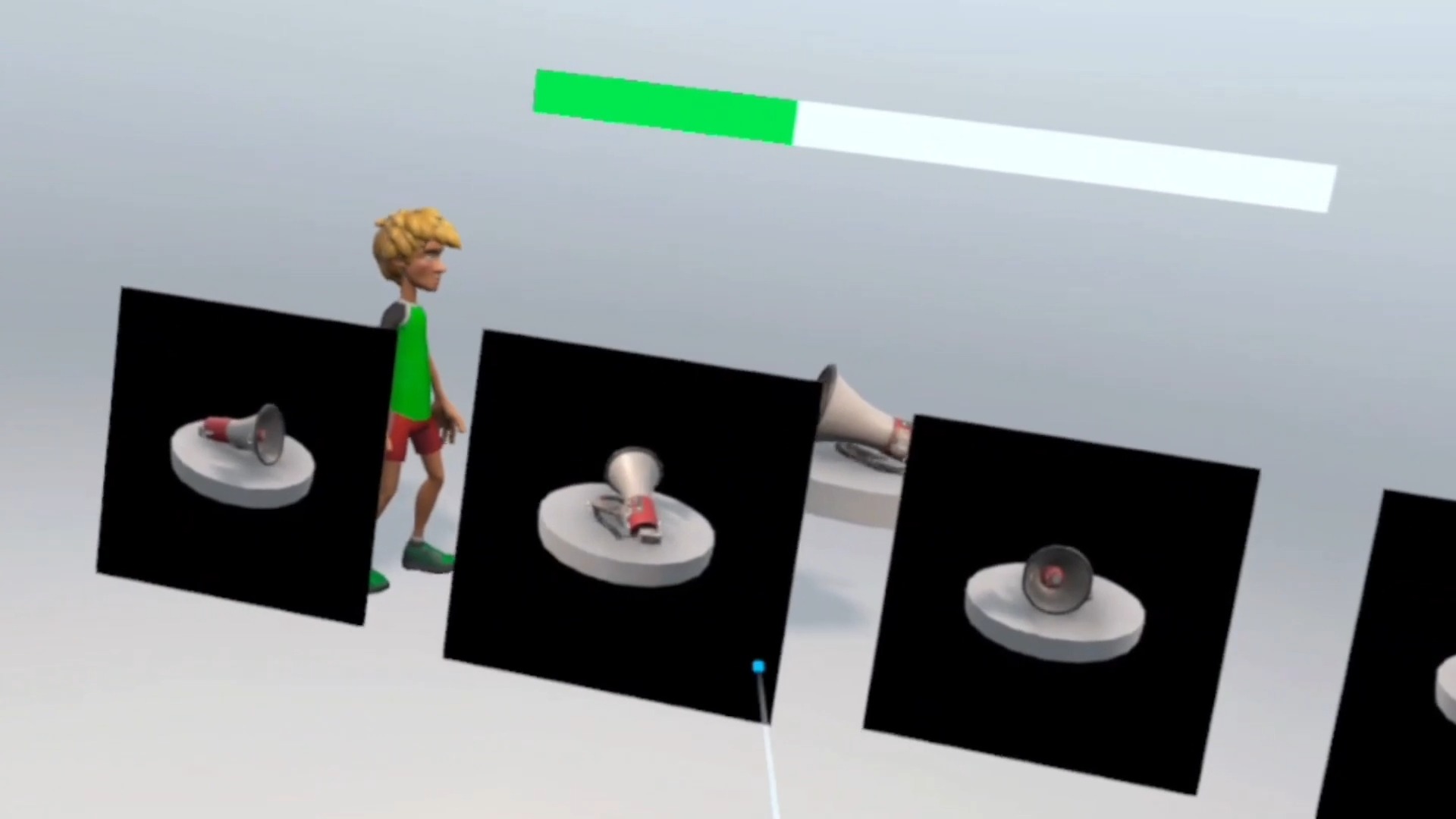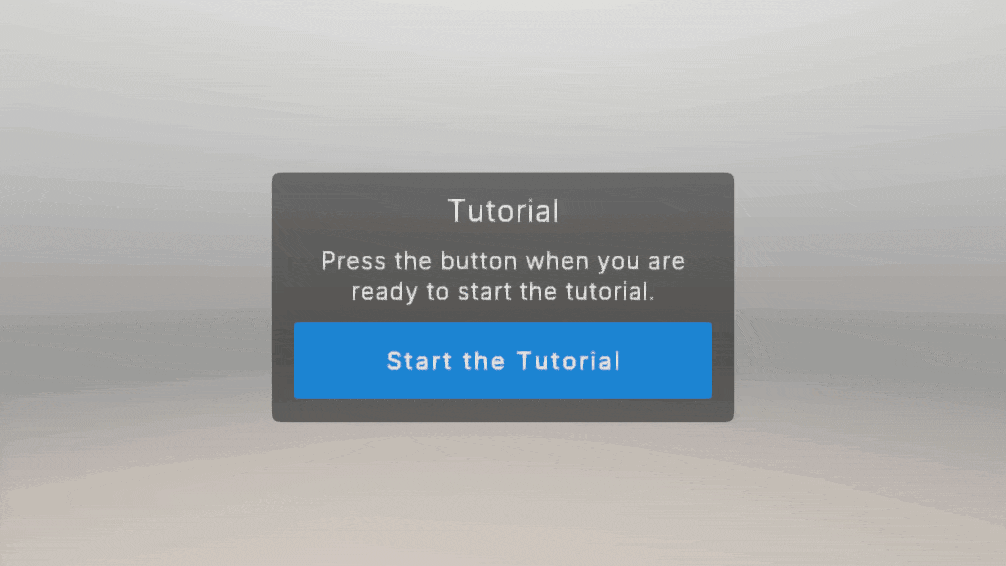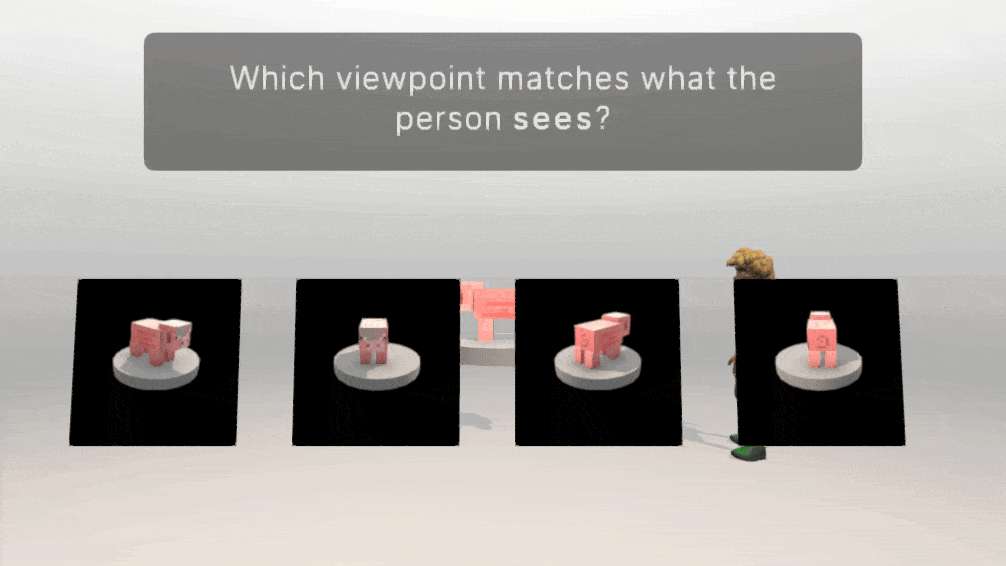Project: Visual Perspective Taking in Virtual Reality
Overview
This project examined the impact of restricted interests on Theory of Mind (ToM) ability in Virtual Reality (VR).
Theory of Mind is a cognitive framework that enables individuals to attribute mental states—such as beliefs, desires, and intentions to themselves and others, and to recognise that these mental states can differ between individuals. This capacity is fundamental for effective social interaction and communication, facilitating empathy and understanding in diverse contexts. The development of ToM typically begins in early childhood, with children gradually learning to discern and interpret the perspectives of others, a skill that is crucial for navigating complex social environments and fostering meaningful relationships.
In relation to this project, prior research has
shown that impairments in ToM are prevalent in populations such as individuals with Autism Spectrum Disorder (ASD) and other developmental disorders, leading to significant
challenges in social functioning and communication. Consequently, understanding the nuances of ToM development and its deficits has become critical for designing effective
interventions and support strategies tailored to these populations.

Hypothesis
This study aimed to explore the relationship between restricted interest stimuli and Theory of Mind performance using virtual reality (VR) technology, with a focus on visual perspective-taking and false belief tasks. By leveraging VR, the study sought to provide a more immersive and controlled environment for assessing how restricted interests may influence cognitive processing in individuals with autism spectrum condition (ASC).
Building on prior research into ToM deficits in ASC, it was hypothesised that including restricted interest stimuli within VR-based false belief tasks would negatively impact task performance compared to more neutral, everyday stimuli. Previous findings (Senju et al., 2009; Wellman et al., 2001) had shown that individuals with ASC often experienced difficulties attributing false beliefs to others, and the highly immersive nature of VR might highlight how restricted interests further narrow cognitive focus and exacerbate these challenges.
By employing VR, this study provided a unique opportunity to manipulate environmental factors more precisely, offering valuable insights into how restricted interests influenced ToM abilities in a dynamic, realistic setting. Thus, the primary hypotheses were as follows:
- H1: Participants would exhibit more prolonged viewpoint onset vs. guess times in the restricted interest condition compared to the everyday stimuli condition. This hypothesis was grounded in the expectation that increased cognitive engagement with restricted interest stimuli would delay the participants' ability to respond accurately to belief-based scenarios.
- H2: Participants would demonstrate reduced accuracy in false belief tasks when presented with restricted interest stimuli compared to everyday stimuli. This was based on the assumption that restricted interests might draw attention away from the core mentalising processes required for effective performance on false belief tasks, as indicated by past research on ASC and attention (Spiker et al., 2012).
- H3: There would be no significant difference in the duration of Stage 2 (response formulation) between the restricted interest and everyday stimuli conditions. This hypothesis reflected the expectation that while restricted interests might influence the onset and accuracy of false belief reasoning, they would not significantly affect the overall time required for response formulation.
These hypotheses were tested using a combination of descriptive and inferential statistical analyses, focusing on comparing performance metrics such as response times and accuracy between normal and restricted interest conditions.
Development Details
The development of this project involved several stages, including initial research, design, implementation, and testing. The project was developed using Unity and VR technology to create an immersive environment for the tasks.
Key features of the project included:
- Interactive and user-friendly interface
- Real-time data collection and analysis
- Huge level of customisable settings for different research needs, on the account that each participant has different requirements.
- Secure and confidential data storage
Screenshots


Outcomes
The study aimed to provide valuable insights into how restricted interests influenced ToM abilities in a dynamic, realistic setting. The outcomes of this study contributed to the understanding of cognitive processing in individuals with ASC and the impact of restricted interests on their performance in ToM tasks.
Future Work
Future work on this project will focus on enhancing its features and expanding its applications. Some planned improvements include:
- Integration with other data collection tools and platforms
- Development of mobile and web-based versions
- Incorporation of advanced data analysis techniques
- Collaboration with researchers from different fields to explore new research questions